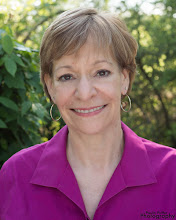
KWDY is pleased to present this article from Marty Weiner's newsletter. Used by permission.
Question: I would like to expand my practice and have more clients. Would you share your thoughts about how to do this?
Answer: There has been much written about this topic recently on the Feldyforum. Usually people talk about networking, advertising, giving talks and free lessons and a host of other marketing ideas. I think this is all fine and you ought to use whichever of these suggestions work for you. I have a different approach that I'd like to explore with you.
I think it is fundamental to realize that the people who need our services are dealing with a personal problem that is affecting their lives--aches, pains, limited movement, paralysis, potential surgeries or past botched surgeries, and many, many more. Imagine yourself in a similar situation and ask yourself who or what kind of person you would want to show up in your life to help you through a difficult time.
When it is me in that situation, I am less interested in what method someone practices and more sensitive to who the practitioner is. Hippocrates said as a practitioner about patients, "Don't tell me what someone has--tell me who has it." I would suggest the same is true for clients looking for a practitioner. They might say, "Don't tell me what they practice--tell me who (what kind of person) the practitioner is".
My point is that YOU are the method as far as your clients are concerned. Name recognition of a system/method is not as important as people recognizing your qualities.
Wouldn't you want someone caring, interested, sensitive to your needs, someone who listens deeply to you and your particular situation? In other words, wouldn't you want first a person skilled in being human and secondarily good at what they do? To paraphrase something Moshe said, "If you touch a client with a loving hand, like a mother touches her child, they will come back to you. They will think, 'They may not have gotten rid of the problem yet, but if anyone can do it, this person can. Because they are focused on me.'"
Share yourself as the evolving human being you are with others. Allow the environment that you create when you are present touch people in the subtle ways that it does. Who you are draws people to you much more powerfully than any advertising you might do. (People came to Moshe because he was who he was--not because he did the Feldenkrais Method.)
Let me give you an example. Most everybody has something that they would like to improve or get rid of. When you are in a social situation, say a party, engaging with people, someone usually asks, "What do you do?" If you tell them you are a Feldenkrais Practitioner they usually ask, "What's that?" That puts you into an explanatory mode about some system that they may or may not be able to see as relevant to them. You have shifted the focus to something and someone who isn't even in the room.
My response is to tell people I am a healer or words to that effect. They usually ask, "What do you do?" Great, now we are talking about what I do or who I am, that may be of value to them. I tell them that I work with a variety of problems and as quickly as possible turn the conversation around to be about them and ask, "Is there something going on for you that is troubling you?" (or, again, words to that effect). Invariably they will start to talk about something bothering them. I then simply engage with them as a curious interested being who wants to find out more about their problem. I may even touch them (always only after I have asked their permission). Often, they want my number to call me for an appointment.
The key thing is that I am living with them what I practice. I bring myself and my consciousness to be of service to them right there in the moment. I am not advertising something--I am living the hope I might be for them in their lives.
Another thing: When a person calls me on the phone to make an initial appointment, I try to "touch them" through the phone. I am responsive and encouraging and begin to create the environment that they will walk into when they come to my office. By the way, always return calls promptly. Ever had the experience of waiting all day for a doctor's secretary to call you back to make an appointment? No one wants to feel like they got lost in the shuffle. Particularly when you are hurting and worried about what's going on in you.
When a person comes I always treat them as if they were the center of the world. This is fundamental to the mode of consciousness I bring to my clients and how I work.
The best thing you can ever to do to develop your practice is treat the person you are with as if they were your whole practice and this their only session. Sounds simple but many practitioners don't get that. They are often more concerned about what the client will think of them and whether they will come back. If you are totally present they will come back even if you are not successful immediately with them. They know that if anyone can help them it is you--someone who is skilled AND there for them. They will tell their friends about YOU (even if they don't know the name Feldenkrais) and you are on your way.
It is not as hard as you may think. Just be the healing presence with people all the time that you are when you are in your office and realize YOU ARE YOUR WORK.
You can sign up for Marty's free e-newsletter, Transform your Practice, by contacting Judy Killeen at judykilleen@cox.net.







Thank you, Marty for your valuable comments. They support my own experience of growing a viable practice in an area where Feldenkrais was unheard of. I realized very early on that it was more important to promote myself rather than the Method. At the same time I have struggled for years trying to figure out how to respond when someone asks what I do. More often than not when I say that I am a Feldenkrais practitioner, I am caught in that explanatory mode that you mention without finding a natural segue into their life and concerns. Your response “I am a healer,” is something that everyone can identify with. I feel that we spend so much time trying to find the definitive way to describe our work that we forget it is more important to use words and phrases that are already familiar to the public. Once a person has experienced ATM or FI we can then begin to introduce our jargon and begin to discuss the finer points of the Method.
ReplyDelete